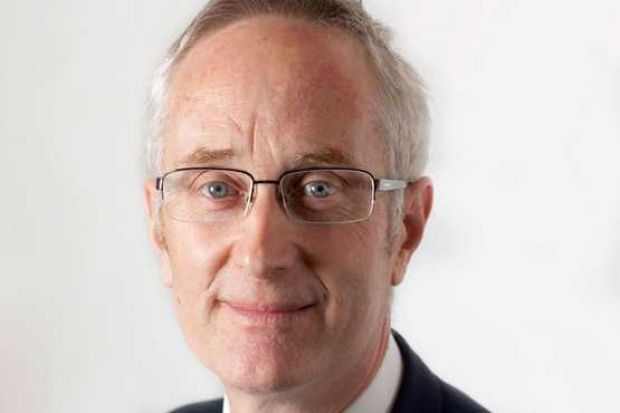The teaching excellence framework (TEF) offers a “huge opportunity to improve the quality of teaching” in English universities, according to the former Downing Street aide who will lead the country’s new super-regulator for higher education.
Sir Michael Barber, the chair of the new Office for Students, claimed that the controversial new quality assessment system offered institutions the chance to make their teaching “more inspiring”.
Speaking to Times Higher Education ahead of his first speech to vice-chancellors, Sir Michael said that one of the most immediate challenges facing the OfS will be “making sure the teaching excellence framework is successful”.
“It will not be perfect but it will be fundamentally important,” said Sir Michael, who compared the TEF’s development to the various iterations of the research excellence framework since the 1980s.
“I remember the pressures of the REF when I was a university professor [at Keele University in the mid-1990s], but progress [in driving research excellence] has been significant,” he said.
However, was Sir Michael comfortable with the prospect of universities closing weaker departments ahead of the subject-level TEF assessment due to get under way in 2018-19?
“I can understand that people are very worried and it is a challenge to the system, but we need to take a student’s perspective – they are paying for high-quality teaching,” he said.
“When it gets to subject-level [TEF] it will have consequences for subjects and faculties, but that is a management challenge,” he said. “Most vice-chancellors know they have some departments that they need to get on to – this will put it more firmly on the agenda,” he added.
With universities challenging departments to improve, there will be a wider debate on what comprises good teaching, he added. “It is a huge opportunity to improve the quality of teaching and make it more inspiring,” Sir Michael said.
Sir Michael, head of the Prime Minister’s Delivery Unit under Tony Blair, and the outgoing chief education adviser at Pearson, said that he would use a speech at Universities UK on 23 July to lay out his vision for a “modern regulator…that will help the sector continue to flourish” over the next 25 years.
Sir Michael – alongside a yet-to-be-appointed chief executive – will head the regulator created by a merger of the Higher Education Funding Council for England with the Office for Fair Access. It will have a wider remit than Hefce, overseeing standards and controlling degree-awarding powers and university titles, while also making loans, grants and other payments to providers – raising concerns in some quarters about the potential conflict of interest arising from a watchdog also holding funding powers.
But Sir Michael said that, while he hoped to facilitate a market in higher education and encourage new providers, he had no interest in “managing” the sector.
Hefce “has been, for the most part, a funder, but the OfS will be a regulator that sets rules for the sector to allow it to continue to flourish”, said Sir Michael.
“That means being risk-based, proportionate, thinking long term as well as short term and [having] really good data,” he added.
Institutional autonomy has been “fundamental to the success of higher education in Britain”, according to Sir Michael, who said that he “did not want to lose those qualities that have made [universities] successful”.
Register to continue
Why register?
- Registration is free and only takes a moment
- Once registered, you can read 3 articles a month
- Sign up for our newsletter
Subscribe
Or subscribe for unlimited access to:
- Unlimited access to news, views, insights & reviews
- Digital editions
- Digital access to THE’s university and college rankings analysis
Already registered or a current subscriber?







